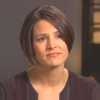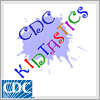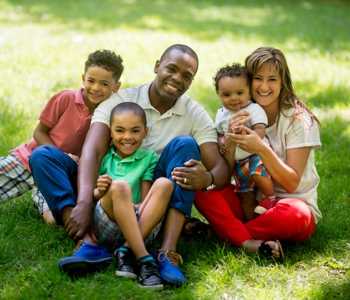Cancer Prevention Starts in Childhood
You can lower your children’s risk of getting cancer later in life. Start by helping them make healthy choices like eating a diet rich in fruits and vegetables and getting regular physical activity to keep a healthy weight. Then follow the tips below to help prevent specific kinds of cancer.
Stay Safe in the Sun
Just a few serious sunburns can increase your child’s risk of skin cancer later in life. Follow our sun safety tips to protect their skin from the sun whenever they’re outdoors.
Indoor tanning and tanning outside are both dangerous. Don’t let your children or teens tan.
Get Your Kids Vaccinated Against HPV
Human papillomavirus (HPV) is a very common virus that nearly all people will get at some point in their lives. HPV is the main cause of cervical cancer and can also cause vaginal, vulvar, penile, anal, and oropharyngeal cancers.
The HPV vaccine protects against the types of HPV that most commonly cause cancer. Both boys and girls should start and finish the HPV vaccine series when they are 11 or 12 years old. Teen girls and young women through 26 years, as well as teen boys and young men through 21 years, who haven’t started or finished the series should get those shots as soon as possible. The HPV vaccine can be given beginning at age 9.
Talk to Your Kids About Smoking and Cancer
The best way to prevent cancer caused by smoking is for kids to never start. Most people start smoking during adolescence. Nearly 9 out of 10 smokers start smoking by age 18, and 99% start by age 26.
In 2016, about one in 12 high school students reported being a current cigarette smoker. And even more reported currently using two or more tobacco products. Talk to your children about why you don’t want them to smoke.
Smoke from other people’s cigarettes (“secondhand” smoke) can cause lung cancer. There is no safe level of secondhand smoke for nonsmokers. Don’t expose your children to secondhand smoke. Take the first steps to quit smoking: call 1 (800) QUIT-NOW (784-8669) for free support and visit www.cdc.gov/quit.
More Information
Featured Resources

Learn how to stay sun-safe outdoors and why children and teens should avoid tanning in our Protect Your Family from Skin Cancer fact sheet. [PDF-860KB]

This fact sheet [PDF-320KB] explains why HPV vaccines are safe for your child.

In this video, a cervical cancer survivor shares how she protects her children from HPV-related cancers.
 Sun Safety: What You Can Do [PDF-860KB] lists ways schools, doctors, and parents can lower children’s skin cancer risk.
Sun Safety: What You Can Do [PDF-860KB] lists ways schools, doctors, and parents can lower children’s skin cancer risk.
 In the “Sun Proof” podcast, the Kidtastics talk about the harmful effects of the sun and how to protect yourself.
In the “Sun Proof” podcast, the Kidtastics talk about the harmful effects of the sun and how to protect yourself.
- Page last reviewed: June 28, 2017
- Page last updated: June 28, 2017
- Content source:
- Maintained By:


 ShareCompartir
ShareCompartir

